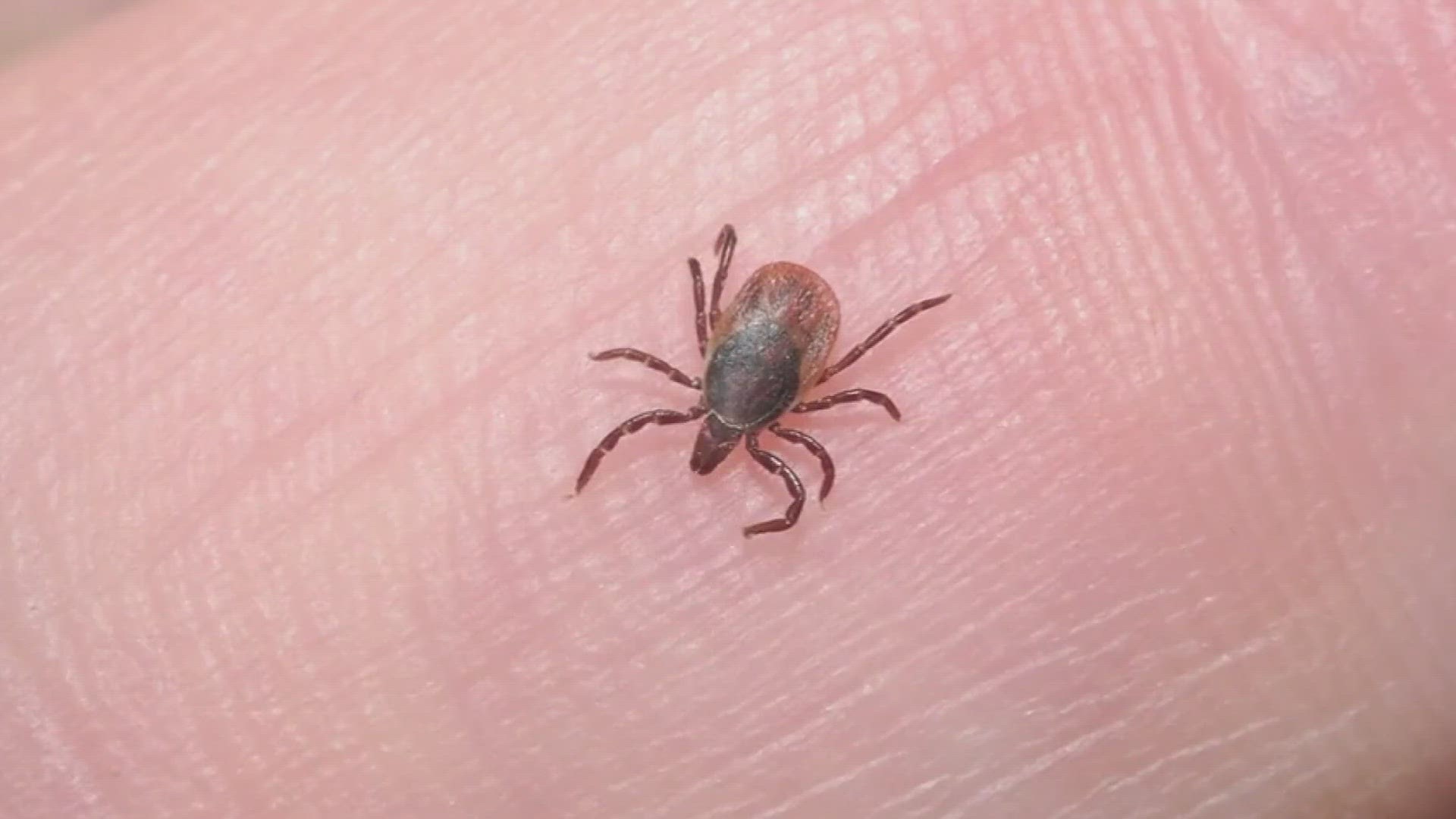KNOXVILLE, Tenn. — Across East Tennessee, the weather is starting to warm and the days are looking bright. People are venturing outside to soak in the sun before returning home. All the while, they may not even realize they picked up a hitchhiker while they were outside — a tick.
An associate professor with The University of Tennessee Institute of Agriculture, Becky Trout Fryxell, said as spring starts up to five tick species are venturing around the area.
However, she said ticks are a year-round problem in the region. During the fall and winter, people still have a chance of running into the Black-Legged Tick, otherwise known as the Deer Tick.
"Tennessee is a beautiful state, absolutely go outside and enjoy yourself. But, I will say that Tennessee always has ticks," she said.
She said her team at the institute takes tick bites seriously. After venturing outside, they check themselves for ticks. She said the group even brings a lint roller with them to help remove ticks.
"You will find a tick. That's great, you want to be able to find the tick because it's the tick that you miss, that's the one that's most likely to transmit a pathogen. When you find that tick, you're going to remove it very carefully," she said.
Ticks have large and strong mouths, relative to their size. Once they clamp down, people need to carefully remove the tick, applying consistent and even pressure to make sure ticks don't leave their mouth parts behind. If the mouth parts stay embedded in a person's skin after removing a tick, people should use the same type of pressure to remove those.
Fryxell said after removing ticks, they should be kept in a medicine bottle or a sealed plastic bag with information about where and when it was found. That way, they can be sent to the institute if a tick bite starts showing symptoms, such as swelling or redness. She said UT could analyze the tick and learn more information about what it ate, helping reveal if it carried dangerous pathogens.
"We're also starting to see some of these other pathogens as well, a few viruses. I'm sure most viewers are concerned about Alpha-gal, or the red-meat allergy, where if you get too many Seed Ticks on you, you may not be able to eat red meat again for a while," she said.
Alpha-gal Syndrome is effectively a kind of food allergy that usually starts with a bite from the Lone Star Tick. It causes a reaction to the Alpha-gal sugar molecule found in most meat products like lamb, beef, pork, rabbit or venison. It is not found in fish, reptiles, birds or people. Reactions to eating red meat that has the sugar molecule can include anaphylaxis.
Vanderbilt University Medical Center said on April 4 that it received a $3.5 million grant to study the immune response, hoping to shed more light on Alpha-gal Syndrome. However, ticks can also carry pathogens that cause illnesses like Rocky Mountain Spotted Fever and Lyme Disease.
"Not every tick bite is going to make you sick," said Fryxell. "But finding it is really important."

